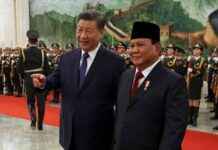Minister Denies Detention Rule Favoring Yingluck: Explained
Justice Minister Tawee Sodsong addressed concerns on Wednesday regarding a new regulation that would potentially allow for the detention of inmates outside prison, sparking speculation about its implications for fugitive former prime minister Yingluck Shinawatra. Tawee clarified that the framework regulation, outlined in the 2017 Corrections Act, is still pending adoption due to the need for additional operational guidelines and eligibility criteria to be established first.
The Regulations in Question
According to Pol Col Tawee, the regulation would apply to inmates who are seriously ill, pregnant, elderly, or deemed to pose a low risk of reoffending, or those with short remaining sentences. The final rules are set to be publicised for feedback before being officially published in the Royal Gazette. Detention outside prison would require approval by a screening panel within the Department of Corrections, ensuring compliance with specific criteria.
Addressing Concerns
The Minister emphasized that the regulations are intended for broader application and are not tailored to benefit any specific individual, including Yingluck Shinawatra. Despite rumors circulating about negotiations for her return, Tawee asserted that the regulation’s purpose is not linked to facilitating her reentry without serving her sentence.
Public and Political Reactions
Former MP Nipit Intarasombat recently suggested that the new regulation could pave the way for Yingluck’s return without facing imprisonment, echoing sentiments expressed by her brother, ex-PM Thaksin. However, government officials have refuted these claims, asserting that the regulation’s implementation is not designed to accommodate Yingluck’s situation specifically.
In light of these developments, it remains crucial for the public to stay informed about the forthcoming regulations and their implications on the criminal justice system. The Minister’s reassurances aim to dispel any misconceptions surrounding the intended purpose of these rules, emphasizing the importance of transparency and accountability in their implementation.
As we await further updates on this evolving story, it is evident that the intersection of law and politics continues to shape public discourse and perceptions. Stay tuned for more insights into this complex and nuanced issue.




















